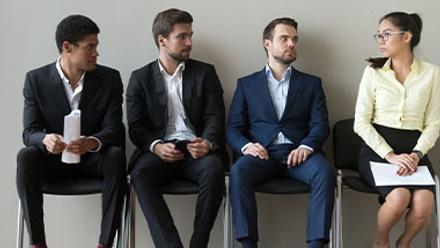How an inclusive workforce can reinforce an organisation’s purpose through social wellbeing

We’re not ones for fancy mission statements or over-engineered declarations about our purpose. For PSGS, our purpose is quite straightforward:
- Support our clients and each other.
- Deliver great work efficiently.
- Enjoy what we do.
We happen to help clients with their pension schemes and healthcare trusts, but that’s by the bye. We could be any service business. The key thing is we do it together.
Achieving our purpose
How do we do it? Time for another three…
- Be social.
- Be a team.
- Be efficient.
Achieving this really does take an inclusive and connected workforce. Although it’s partly about people, partly about process and partly about technology, COVID-19 has brought social wellbeing as an underpin clearly into focus.
Achieving inclusivity and connectivity
Having seen a LinkedIn TV advert the other day, my husband asked me if I’d ever worked anywhere where the business and its team actually cared for and supported each other (rather than just saying they did). I said: “Yes, PSGS”. I’m clearly lucky to work where I do.
Let’s start at the beginning; with people. We’re fortunate that, although big in our line of work, our team is relatively compact at around 40. Although I’m talking about our whole business, what I say could easily apply to teams within a larger business.
Being social
The social element has always been a core part of ‘us’ and the wellbeing of our team. It’s something our Management Board actively encourage and we’ve taken purposeful steps to try and continue to promote this during lockdown. Pre-COVID, ‘work-social’ life happened every day in our offices, frequently after work and at regular specific team events. As a team, we connect on many different levels.
Since lockdown began, we’ve been using a ‘Tea break social’ group on Yammer to socialise, share photos, stories and ideas and generally have some fun. Particularly popular are silly animal photos/videos, such as my alpacas failing to social distance. It’s been a good replacement for general office banter.
Committed to continue holding a summer team event but faced with us all being based at home, we held a virtual summer fete. We purposefully included something for everyone and their families to join in with if they wanted. We sent every household a party pack with drinks, nibbles and bunting and had at least three generations taking part in best hat, bake-off and PSGS you’ve been framed competitions and virtual bingo.
Being a team
As a business, we understand and consider the dynamics of our team as a whole and each individual within it. Diversity is important as we’re stronger if we’re different but having a team that gels is also important to us, so we recruit smartly to cover both and get the right fit.
We’re fortunate to have been in the position to take on new staff since the start of the pandemic and have had to tackle the challenge of ‘lockdown induction’ given our offices have been closed. One of our team came up with the idea of a socially distanced garden induction. Once permitted by both government guidelines and the weather, this has been our approach and it ensures new staff have buddy support and feel personally connected from day one. Once we know someone is joining they become part of our team, even ahead of their formal start date. Two new joiners in this position (and their families) joined our virtual summer fete – connections were made and the importance to us of ‘social’ and ‘team’ were clear.
Being efficient
The most boring of the three? That’s really not the case. Yes, using technology to streamline processes is a good thing, but I’d argue using it to keep your team well connected is even more valuable. The Teams platform has quickly become a key part of our toolkit. From weekly ‘Town Hall’ meetings where we share important things happening for our clients and our business across our entire team, to spur of the moment small group video calls to solve an issue, it has improved both efficiency and connectivity whilst also injecting a bit of fun to the working day.
We’re using technology to make sure business decision making is fully inclusive too. Being connected with our team means we’re taking the big decisions together. PSGS really is our business – and that’s valuable.
The author is Suzi Lowther, director of marketing and communications at Punter Southall Governance Services.
This article is provided by Punter Southall Governance Services.
Supplied by REBA Associate Member, Vidett
Leading the way in professional trusteeship & governance







